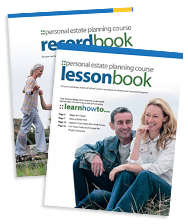Start Today
View and download your FREE copy of A Guide to Making Your Will.
Your Gift Brings You Closer
You want to leave money to the American Academy of Periodontology Foundation in your will. You also want the flexibility to change your will in the event that life circumstances change. You can do both.
In as little as one sentence, you can complete your gift. This type of donation to the AAP Foundation in your will or living trust, helps ensure that we continue our mission for years to come.
Information contained herein was accurate at the time of posting. The information on this website is not intended as legal or tax advice. For such advice, please consult an attorney or tax advisor. Figures cited in any examples are for illustrative purposes only. References to tax rates include federal taxes only and are subject to change. State law may further impact your individual results. California residents: Annuities are subject to regulation by the State of California. Payments under such agreements, however, are not protected or otherwise guaranteed by any government agency or the California Life and Health Insurance Guarantee Association. Oklahoma residents: A charitable gift annuity is not regulated by the Oklahoma Insurance Department and is not protected by a guaranty association affiliated with the Oklahoma Insurance Department. South Dakota residents: Charitable gift annuities are not regulated by and are not under the jurisdiction of the South Dakota Division of Insurance.
 Meet Tom and Martha. When they got married and created a will, they included a $75,000 gift to the AAP Foundation. As the family grew to include three children, Tom and Martha decided to revise their gift to ensure their children's future financial security.
Meet Tom and Martha. When they got married and created a will, they included a $75,000 gift to the AAP Foundation. As the family grew to include three children, Tom and Martha decided to revise their gift to ensure their children's future financial security.